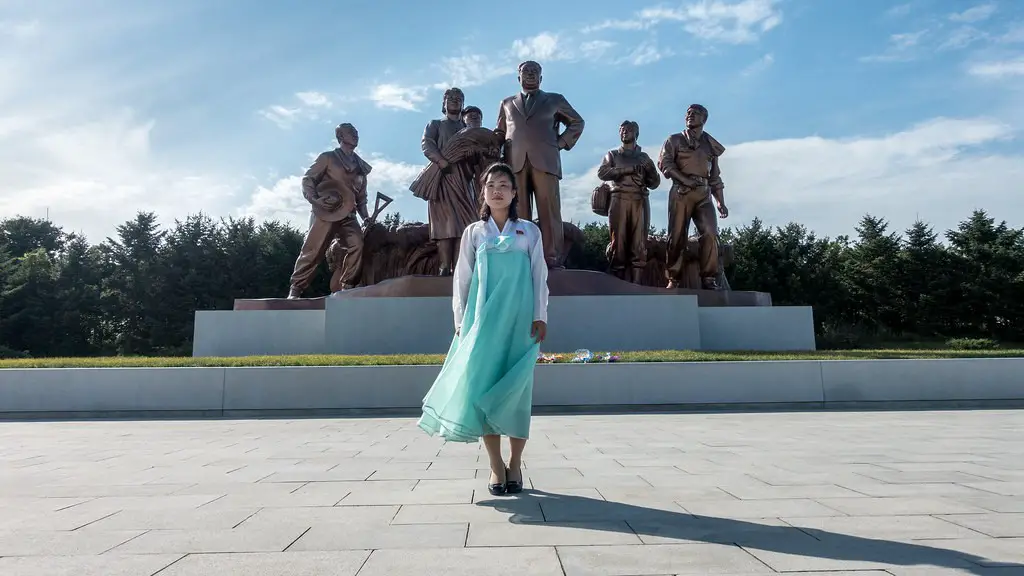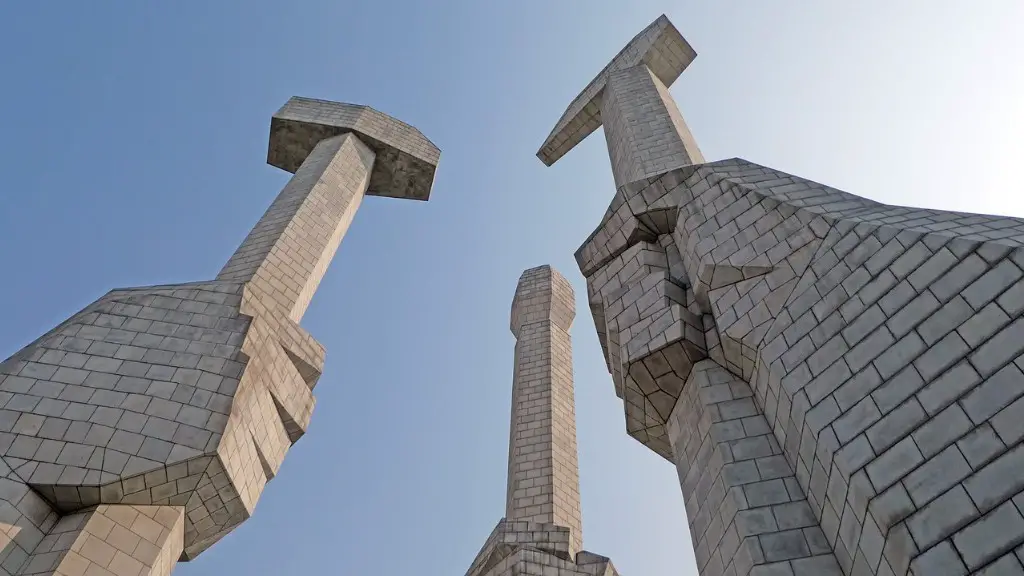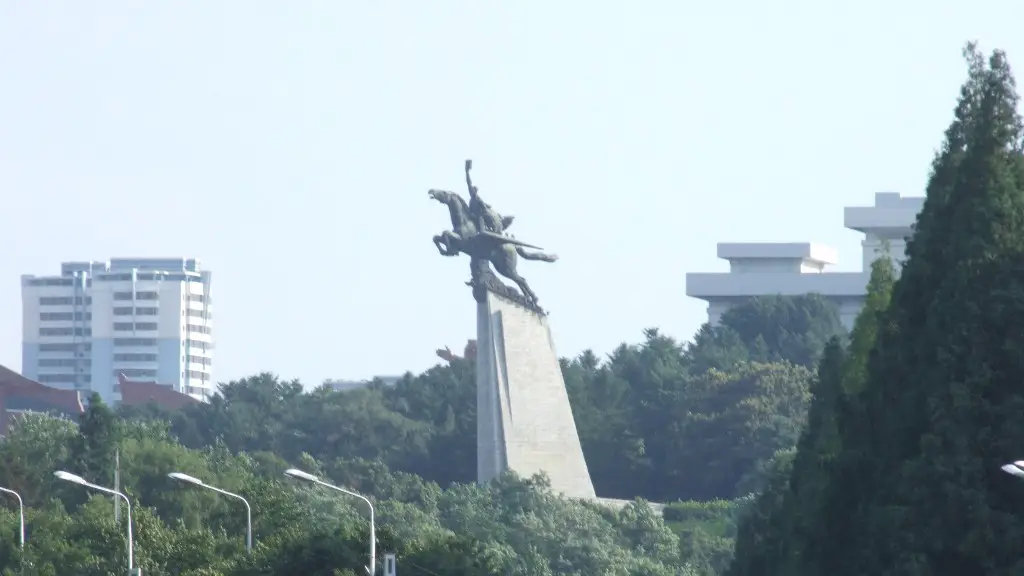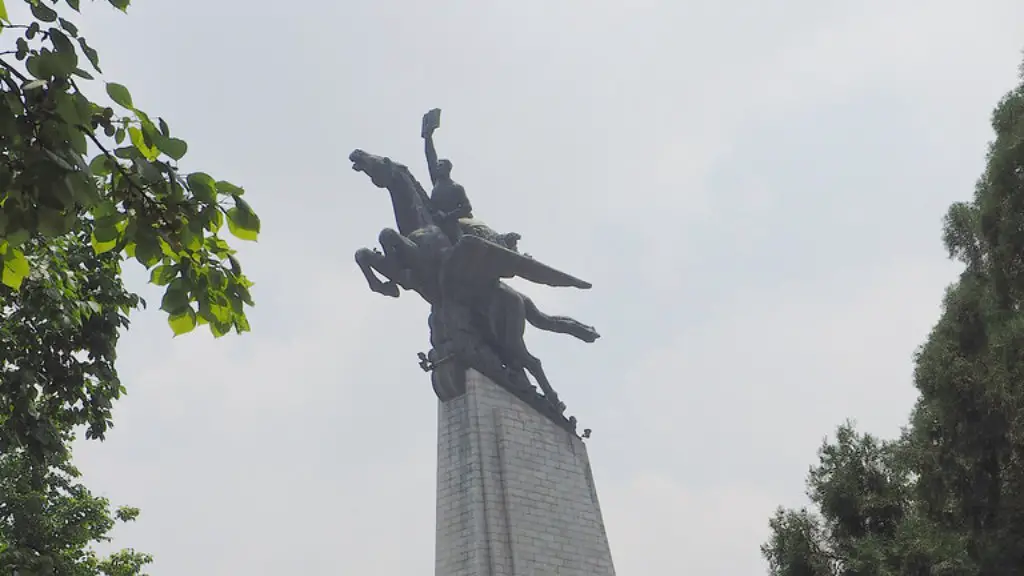In 2018, North Korean President Kim Jong Un and US President Donald Trump signed an agreement for the return of North Korean remains. This agreement declared that North Korea has committed to returning the remains of US personnel from its war with the US from 1950-1953. While some remains have been identified and returned, the full extent of those that are still unaccounted for remains unknown. This article seeks to bring to light the current status of the agreement and suggest potential courses of action.
The Korean War remains largely unacknowledged and secretive, leading US intelligence to attempt to use satellite imagery to locate suspected graves of dead US service personnel. The technological advancement of satellites might make it easier to search for more evidence of missing remains. In 2018, after negotiations between the two nations, North Korea agreed to start handing over the remains of Americans killed in action, a process that had been stalled since 2005. Since then, North Korea has formally handed over 288 caskets in six repatriations and identified additional war dead who were returned to the US.
As of November 2018, seventy-five years after the war, seven thousand seven hundred and ninety-two Americans had not been accounted for. The US government estimated that as many as five thousand of these missing US personnel were likely buried in North Korea and could be recovered with sufficient cooperation from North Korea. However, the US remains uncertain if North Korea can and will provide that level of cooperation. In the months following the agreement, North Korea held off on returning additional remains and has only recently resumed the process.
While the exact number of individuals that may still be unaccounted for is unknown and the terms of the agreement are still in flux, experts suggest that the US government needs to be more aggressive in its efforts to locate, identify and recover the remains of US personnel from North Korea. This includes strengthening diplomatic relations and developing a longer-term plan for returning US remains from North Korea. US officials are also striving to increase the pressure on North Korea to cooperate, but it is yet to be seen if their efforts will be successful.
The US also needs to consider all of the necessary steps when attempting to repatriate remains from North Korea. For example, it is important for the US government to ensure that the remains are handled with the utmost respect and that all relevant personnel are properly trained and equipped to perform the necessary duties. Additionally, communication with family members of those who are missing must be improved to ensure they are fully informed and provided with adequate support. Finally, greater transparency needs to be established surrounding the process of identifying remains and finding out how many, if any, family members are still in North Korea.
Diplomatic Relations and Negotiations
The strongest diplomatic efforts must be pursued in order to ensure successful retrieval of the remaining American servicemen and women. Open talks between North Korea and the US as well as other war-torn nations will help build trust, allowing for deeper cooperation and improved negotiations. However, it is important to bear in mind that North Korea is likely to be resistant to any outside involvement and that any negotiations must include thorough evaluation of North Korea’s security concerns and current international commitments. In order to work towards successful resolution, the US must provide North Korea with the necessary incentives, such as economic and diplomatic support.
Additionally, the US should work to ensure that negotiations remain outside the scope of the US-North Korea nuclear agreement. This will protect both sides from political complications. It is also important for the US to remain aware of the fact that North Korea’s ultimate goal is to assert its presence as a world power and keep the momentum going in its favor. Being well-informed and prepared will stand the US in good stead during the process.
The US must prioritize not just the physical recovery of missing combatants but also their families. Preliminary research must be conducted including contact information of known family members and the organization of family-hosted memorials. These ceremonies allow for closure for affected families and are a testament to their nation’s commitment to honoring its veterans. They can also bring divergent nations together and promote peace.
Resource Allocation
The US government needs to allocate adequate resources to the issue of recovering American remains from North Korea to ensure that all known remains are returned as quickly as possible. This would involve considerable investment in personnel and fees, including additional personnel to monitor the handover of remains, and also funds to cover the cost of transporting remains to their destination. Without sufficient resources, the process of recovering remains is likely to be sluggish and unpredictable.
The US government must also consider other issues such as whether the remains are provided in a condition that will make identification difficult, requiring additional resources then and there. US officials must make sure that sufficient resources are available specifically for identification of the remains and that procedures to ensure accurate identification are in place. Adequately allocating resources for these tasks is essential for ensuring a successful return of US personnel remains from North Korea.
The Department of Defense (DoD) should also be responsible for developing and implementing a comprehensive plan for recovering the remains of US personnel from North Korea. The DoD must ensure that all necessary resources and personnel are in place for the mission and that committees, teams and task forces are established to develop and execute plans, coordinate resources and monitor progress. This plan should include a timeline of all steps, a budget and an evaluation plan. Additionally, the plan must be adjusted based on progress and feedback.
International Support
International support is essential to the successful return of American remains from North Korea. Countries such as China and South Korea have the potential to help facilitate negotiations between the US and North Korea, while the United Nations may be able to provide legal and political support. The US should also leverage other nations’ historical and cultural connections to North Korea in order to understand their motivations and intentions. Understanding the North Korean perspective will be essential for productive negotiations.
International organizations, such as the UN Committee of Missing Persons or the International Red Cross, are well-positioned to mediate negotiations and may even be willing and able to establish fact-finding missions to locate and identify remains. Finally, international NGOs could also provide vital assistance by offering resources and technical support in areas such as forensic research.
Given these various options, the US should explore possible means of involving the international community in efforts to recover the remains of fallen US personnel from North Korea. This may help to ease tensions and facilitate productive negotiations, leading to successful resolution.
Preventing Further Losses
Finally, the US should strive to prevent any further losses by establishing preventative measures that ensure the safety and security of US personnel abroad. These measures should include, but are not limited to, strict enforcement of regulations, regular training, and improved communication between commanders and personnel. Additionally, the US government must ensure that sufficient resources are allocated for healthcare, support and emergency evacuation of personnel, if necessary.
Additionally, the US should be prepared for the worst-case scenario. For example, the DoDshould make sure it has the necessary resources, personnel and plan ready to handle any identified remains, as well as any future remains that might be discovered. In order to be fully prepared, the DoD should develop a comprehensive plan and create specialized teams to help carry out all necessary tasks to retrieve, identify and repatriate remains. Finally, the DoD should consult experts to ensure maximum support for the recovery efforts.
Finding and identifying the remains of US personnel who lost their lives in the Korean War should be a priority for the US government. While the agreement between the US and North Korea is currently in flux, the US must strive to recover all the remaining US personnel from North Korea. In order to ensure their successful return, the US must prioritize diplomatic relations, allocate adequate resources and seek international support for its efforts. Along with preventative measures to ensure the safety of US personnel abroad, these steps should be taken in order to honor and remember the fallen.




